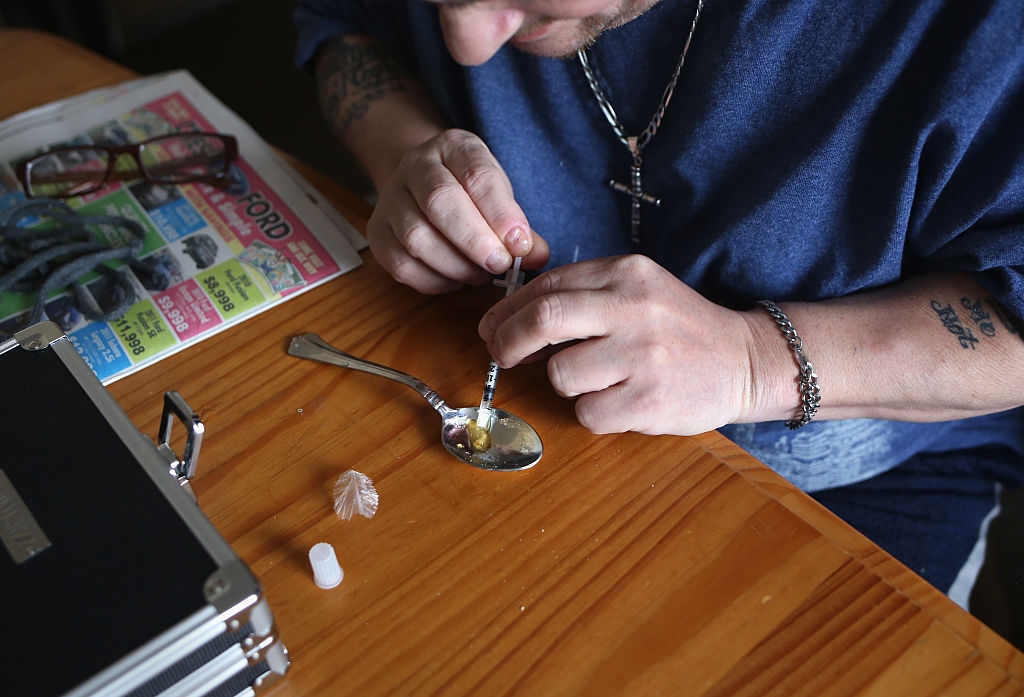The latest statistics from the BC Coroners Service show that 125 people died of suspected drug overdoses in January, the highest number since last May.

That’s renewing the call from some quarters for the government to take drastic action to reduce drug deaths. One of the most radical perspectives: legalize everything.
Donald MacPherson is the executive director with The Canadian Drug Policy Coalition, an advocacy group that is pushing for major regulatory changes; on Wednesday, he joined CKNW’s Simi Sara Show to explain why he thinks all drug should be legal.
There’s no doubt that legalizing hard drugs would be controversial. But can the public be won over? MacPherson believes the answer is yes – and he argues that the evidence backs him up.
“I think it’s something that we need to look at very carefully, and that we are at the end of an old paradigm,” said MacPherson. “The paradigm that relied on concepts like drug prohibition has clearly failed.”
- 2 teens charged with murder in case of 16-year-old killed outside Halifax mall
- Green Party deputy leader given jail sentence for Fairy Creek old growth protests
- Cars torched, explosions heard in suspected arson in Montreal neighbourhood
- Gas station clerk stabbed several times during violent attack at Ultramar in Montreal
Keeping drugs illegal, he argued, has done nothing but concentrate power in the hands of organized crime, while creating a situation where more than 1,400 people died of overdoses in B.C. last year alone. Ending prohibition would keep cash out of the hands of gangsters, he said, while keeping drug users alive.
Legalization would not be a ‘magic bullet’ to solve addiction problems, he said, acknowledging that drugs like alcohol still come with devastating social costs.
He said any move towards legalization would need to be well supported by regulation and education. But he said it would also bring social problems into the light, reduce risks and keep people alive long enough to get treatment.
“Prohibition of alcohol increases those risks. Prohibition of all these other drugs increases those risks. So I don’t hear many calls for prohibition of alcohol as a way to deal with alcohol problems,” he said.
LISTEN: Overdose deaths in B.C. increase in January
Part of the reason radical action is needed, MacPherson argued, is that while rates of addiction and drug use haven’t changed, the death count has spiked in recent years. MacPherson chalks that up to the presence of fentanyl, which has rendered the illegal drug supply toxic. The latest BC Coroners Service report found fentanyl in more than 83 per cent of fatal B.C. overdoses last year.
MacPherson pointed to countries like Switzerland and the Netherlands, along with pilot projects in Metro Vancouver, that have offered access to a clean supply of drugs as examples.
He said in those cases, where addicts know what they are using, they aren’t dying. Instead, they are able to begin the work of getting well.
“They’re getting on with their life, they’re working on the root causes of their addictions. So it’s sort of a no brainer.”
MacPherson also argued that legalizing drugs would allow governments to get serious about treating addiction. He said by taking the label of criminal off of drug users, more people would be willing to be honest about their use, and potentially get help.
And he argued that it would also free up significant amounts of money currently used for police enforcement that could be redirected into funding drug treatment.








Comments